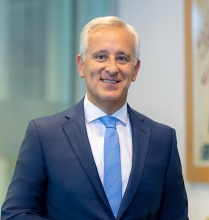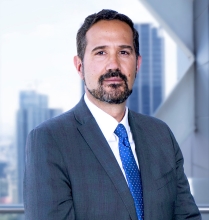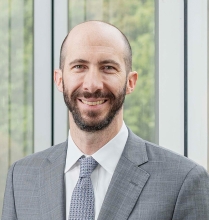International Arbitration Newsletter - December 2021 | Regional Overview: Asia Pacific
The most relevant Asia Pacific updates from the global International Arbitration and ADR practice group at Garrigues.
Japan
Japanese investor wins claim over solar plants dispute
In November 2021, following an award issued in May 2021 ruling that the change on remuneration regime for solar power producers that Spain implemented from mid-2013 onward breached the fair and equitable treatment standard under the Energy Charter Treaty (ECT), a Japanese investor, JGC Holding (JGC), was awarded a compensation valued at EUR 23.5 million, plus interest and expenses against Spain by an ICSID tribunal for the damages that Spain’s change on its renewable energy regime had caused to JGC’s legitimate aspirations.
The disputes arose from two concentrated solar power plants in the Andalusia region of southern Spain that JGC invested in in 2010. As Spain took measures to combat its electricity tariff deficit, JGC launched an ICSID claim against Spain in 2015. Spain had objected to the tribunal’s jurisdiction based on the European Court of Justice’s decision in Achmea, but subsequently withdrew the objection after the 2019 Opinion 1/17 concluded the ISDS provisions stipulated in the EU’s trade agreement entered into with Canada comply with the EU law.
As indicated in the award issued in May 2021, the tribunal dismissed Spain’s argument that JGC could have foreseen the possibility of great changes in Spain’s regulatory regime through a Decision of the Supreme Court, and ruled that under the ECT, States are obliged to maintain the fundamental paradigm of the regulatory regime. Thus, the changes implemented by Spain from 2013 are to be considered as having reshaped the regime, damaging JGC’s expectations.
Korea
Claim for liquidated damages initiated against Korean state-owned bank
In April 2020, a Singaporean commodities trader, Antanium Resources (Antanium), together with seven other unidentified plaintiffs, launched a HKIAC claim valued at approximately USD 1.58 billion against Industrial Bank of Korea (IBK), a Korean state-owned bank, on the grounds that IBK breached its contractual obligations regarding the investment trust.
Antanium is currently undergoing a restructuring process due to the adverse impact of the COVID-19 pandemic in its traditional commodity trading business model and the lack of trade finance measures for transactions involving SMEs.
In September 2021 the Singapore High Court ruled that the funds provided by Omni Bridgeway, an Australian controversial fund, in support of Antanium in its claim against IBK would be given “super-priority” status in the latter’s debt restructuring. Omni Bridgeway shall have priority over any amounts recovered by Antanium from the HKIAC arbitration for debts arising under the arbitration financing agreement between Omni Bridgeway and Antanium.
Singapore
Singapore Court of Appeal revokes ICC award after upholding new defense
An ICC award was partially revoked by the Singapore Court of Appeal based on a completely new defense raised in the closing submissions and later upheld by the court. The decision was orally issued by a three-judge bench in September 2021, holding that the extension of time for the completion of the works under the subject project granted by the arbitration tribunal to the engineering contractors was beyond its jurisdiction and breached the principle of natural justice. Therefore, the liquidated damages to the counterparty for delays to the project were decreased by USD 15 million.
The dispute concerns a polysilicon plant based in Malaysia, which was owned by a Japanese entity named Tokuyama. In 2010, Tokuyuma subcontracted the project to a subsidiary of another Japanese group, Chiyoda Corporation, which disclosed in 2019 that it had been ordered to pay approximately USD 49 million by the arbitration tribunal. The delay to the project was caused by excessive vibrations in compressor motors, which had not been fixed until the completion of the construction for which the owner of the plant claimed a delay of 144 days and its corresponding damages. The arbitration tribunal ruled that 25 days in the 99-day delay would be deemed as a fair and reasonable extension, but the award was later revoked by the Singapore High Court, which determined that the days of delay for the calculation of the liquidated damages would be 99, instead of 74. The Singapore Court of Appeal upheld such decision.
Contacts



-
+52 55 1102 3570
-
+52 81 8153 3900
-
+52 442 296 6400
-
+57 601 326 69 99



